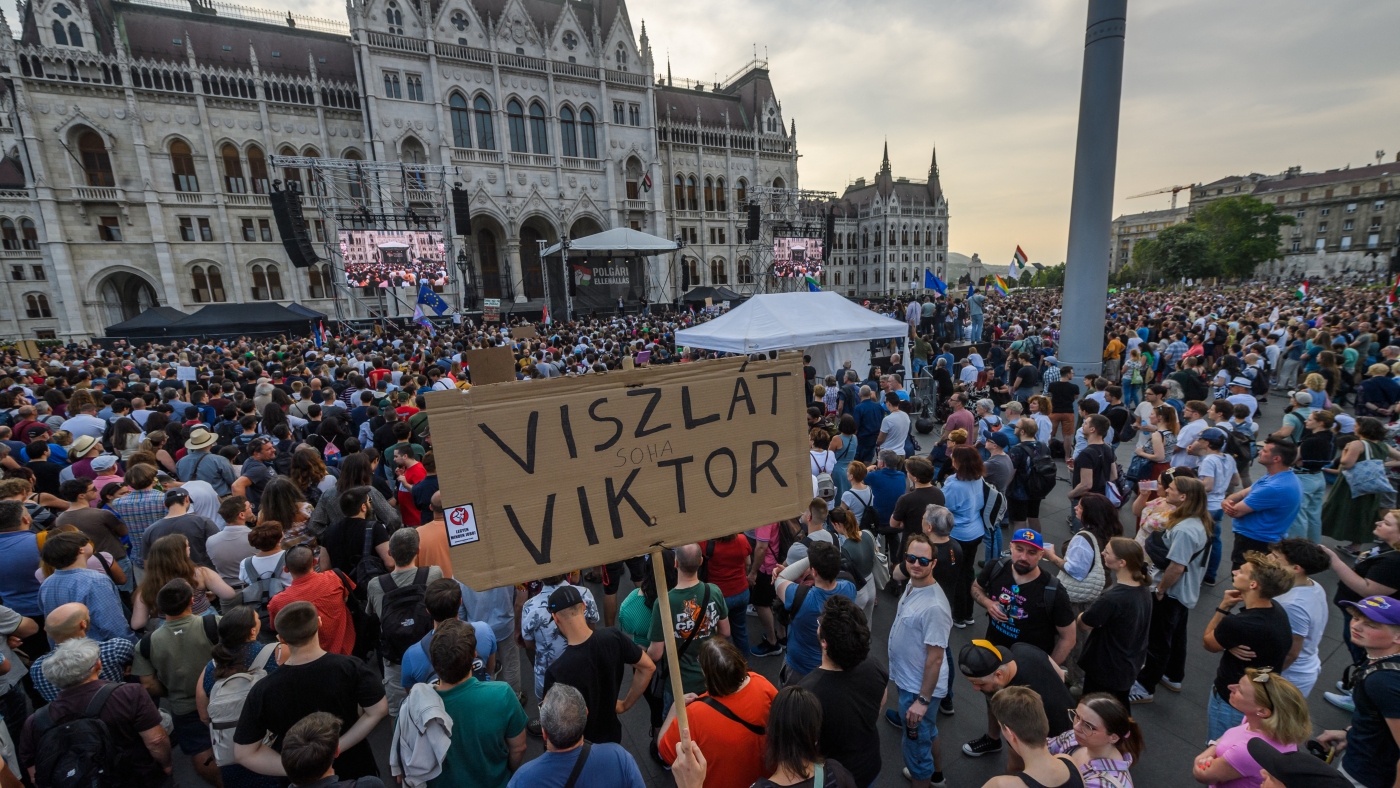Hungary’s Rising Tide of Resistance: Navigating the Current Political Crossroads
The recent eruption of protests in Hungary, with around 15,000 demonstrators filling Budapest’s streets, signals more than just momentary unrest; it marks a critical juncture in the nation’s political evolution. Citizens from diverse backgrounds have coalesced in defense of democratic norms and civil liberties, challenging the increasingly authoritarian course charted by Prime Minister Viktor Orbán and his Fidesz party. This analysis explores the roots, the dynamics, and the implications of the movement seeking to counterbalance Orbán’s consolidation of power.
A Shift From Democracy To “Illiberalism”
Orbán’s leadership has reshaped Hungary’s political landscape through a deliberate pivot to what he famously terms “illiberal democracy.” This model embraces centralized control and skepticism of liberal democratic institutions, often clashing with European Union values. Legislative maneuvers—including a controversial law passed in March and an ensuing constitutional amendment—have tightened this grip. Painted by critics as instruments to suffocate opposition, these measures have drastically reshaped the country’s democratic framework by limiting political pluralism and curbing judicial independence.
This strategy has bred widespread dissatisfaction. It’s not simply about laws on paper; it’s about the lived reality for Hungarians witnessing the erosion of democratic practices, the muffling of dissent, and the marginalization of minority protections. These concerns serve as the crucible from which the protests have emerged.
The Protest: More Than a Demonstration
The march onto Budapest’s central square transcended conventional protest, carrying the symbolism of a grassroots movement transforming fragmented concerns into a unified call to action. The participation of nearly two dozen public intellectuals—writers, actors, musicians, and journalists—lends the movement a cultural resonance that amplifies its reach and legitimacy beyond politics. Their involvement signals a deep societal engagement that transforms protest into a battle for the national conscience.
Central demands articulate fear and resistance against government measures that threaten democratic integrity. The protest isn’t a fleeting event but a statement: Hungary’s people are reasserting their stake in governance, insisting that transparent, accountable institutions prevail.
The Resilience of Civil Society: Rekindling Democratic Spirit
These protests illuminate more than immediate political opposition—they reflect a vibrant civil society awakening and asserting itself. Hungary’s historical experience with political repression has fostered a cultural memory that nourishes activism. This moment in Budapest is reminiscent of past struggles for freedom, enriched by the artistic and intellectual passion fueling it today.
The capacity of this movement to sustain momentum is pivotal. A coherent and unified resistance could disrupt Orbán’s hold on power. Moreover, its visibility casts a spotlight on Hungary’s democratic backslide, sending ripples far beyond its borders and inviting greater scrutiny and support from international actors.
Navigating Obstacles and Charting a Path Forward
Orbán’s entrenched institutional dominance and media control pose formidable barriers. Messaging is often preempted or distorted, making it difficult for opposition voices to penetrate mainstream discourse. Political polarization adds complexity, as many Hungarians remain loyal to Orbán’s vision, viewing resistance efforts through a lens of skepticism or opposition.
Fragmentation within the opposition risks diluting the movement’s impact. The inclusion of figures like Peter Magyar—who has brought political scandals to light—demonstrates a strategic blend of grassroots activism and institutional challenge. Such dual tactics may help overcome entrenched barriers, but cohesion and clarity of purpose remain essential for lasting progress.
A Crucial Moment for Hungary’s Democratic Future
Hungary today stands at a crossroads, with mass protests spelling out dissatisfaction loud enough to reshape public dialogue. The diversity and scale of these demonstrations reflect a society unwilling to concede democratic freedoms without contest.
While uncertainty clouds the political horizon, this surge of resistance embodies an enduring quest for accountable governance. It offers a glimmer of hope that democracy can be defended and restored through collective action, cultural engagement, and strategic institutional pressure.
Whether this movement becomes a sustained force for change or is stifled by systemic controls will have profound implications—not only for Hungary but for the broader region’s democratic prospects. What unfolds will be a testament to the resilience of civil liberties and the power of collective will.
—
Sponsor
هل تبحث عن طرق لتعليم طفلك مهارات المستقبل؟ مع Novakid Global ARABIC، يمكن لأطفالك من سن 4 إلى 12 عامًا تعلم اللغة الإنجليزية عبر الإنترنت بطريقة ممتعة وتفاعلية. نوفاكيد تقدم دروسًا مع معلمين ناطقين باللغة الإنجليزية، مما يضمن تجربة تعليمية غنية وفعّالة، ويعتمد منهجنا على المعايير الأوروبية CEFR، مما يساعد الأطفال على إتقان اللغة التي تعتبر أساسية في عالم الذكاء الاصطناعي والتكنولوجيا. ابدأ رحلة تعلم اللغة الإنجليزية لطفلك اليوم!

